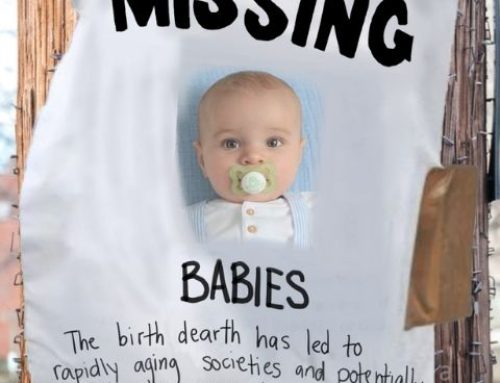Life is not like a baseball game with clear, clean lines
The brief interim between the end of batting practice and the commencement of the game invites a moment of reflection when the spectator can look at the field of play while it is devoid of players. In this meditative moment, undistracted by the game, one can begin to appreciate the significance of the foul lines. They begin at “home” and extend out to infinity, as they embrace the entire playing field. They are both protective arms and defining boundaries.
 There can be no game without these foul lines. And if one objects to the harshness of the word “foul,” let him understand that baseball is neither indecisive nor timid about the way it identifies the location of a ball that is not “fair” (a term that is redolent with implications of justice, beauty and liveliness).
There can be no game without these foul lines. And if one objects to the harshness of the word “foul,” let him understand that baseball is neither indecisive nor timid about the way it identifies the location of a ball that is not “fair” (a term that is redolent with implications of justice, beauty and liveliness).
Baseball’s foul lines echo more important lines, those that divide right from wrong, good from evil and truth from falsity. They provide a context of clarity that is often missing in the worlds of politics, religion and morality. Fans may boo and scream, but their protests are directed at the performance of the players or at the officiating of the umpires. The game itself is a welcomed reprieve for the anxious multitude that live in a world of confusion where the foul lines are blurred, erased or misplaced.
On Dec. 21, 2005, the Canadian Supreme Court, by a 7-2 vote, decided to erase the line that traditionally separated decency from indecency. It redefined decency so that decency no longer means decency. Concomitantly, it redefined indecency to mean “harm.” According to Chief Justice Beverly McLachlin, group sex among like-minded adults (including 14-year-olds) in private does not meet the test of indecency.
She explained that “over time, courts increasingly come to recognize that morals and taste were subjective, arbitrary and unworkable in the criminal context and that a diverse society would function only with a generous measure of tolerance for minority mores and practices.” Can a diverse society function without legalized orgies? Unwittingly, the court drew a new line, however arbitrary, separating two kinds of diverse societies: one that can function with orgies and one that cannot. This misplaced line is purely the product of the legal imagination.
Fred Phelps and his cult members travel around the United States and hold up vile placards outside of military funerals. They do this because they believe that the reason American soldiers die in wars is that God hates the United States. Their signs carry such provocative condemnations as “God Loves Dead Soldiers,” God Hates You,” “God Hates America.” On June 5, 2006, Albert Snyder sued the group after it protested at the funeral of his son, Matthew, a Marine killed in Iraq. The Fourth Circuit Court of Appeals, nonetheless, decided that the malicious words constituted “speech” and were therefore protected by the First Amendment. The judge ruled that the protesters were not guilty of “intentional infliction of emotional distress” and ordered the aggrieved father to pay $16,510 in court costs.
Where is the line that separates free speech from speech that intentionally and maliciously inflicts emotional distress on a parent who is mourning a son who lost his life defending his country? Apparently, it has been erased, though the U.S. Supreme Court may have something to say about it in the near future. As a result, foul is fair, the hell-broth stirred by the witches of Macbeth – “Fair is foul, and foul is fair/Hover through the fog and filthy air.”
On the other hand, innumerable judges have not hesitated to draw lines around abortion mills to keep abortion protesters at a distance. Warren Hern, who does abortions in Boulder, Col., wants to keep protesters at least 150 metres away from his facility’s entrance. He is working with attorneys in drafting a proposal for this new ordinance.
The 150-metre line of demarcation might be more than “necessary” (imagine the distance from home plate to the deepest part of centre field in the old New York Polo Grounds where Willie Mays made “the catch”), but the not-so-rhetorical question arises: is abortion more sacrosanct than a military funeral? Should we safeguard the former and leave the latter open to malicious abuse?
When moral lines are blurred or obliterated, people are left confused about how to play the game of life. Are sex orgies okay? Is the line between fidelity and adultery purely subjective? Is it wrong to protest peacefully outside of abortion sites? Should unborn human life be unprotected by law? Should the organized and intentional infliction of emotional distress on people grieving at funerals be protected by law? Should morality be determined by lawyers? Is the erasing of boundaries a virtue?
Life, to be sure, does not always have the clear, clean lines that delineate a baseball field. Baseball is an ideal, but one that is not unrelated to life. With no lines at all, we find ourselves in that violent world described by Thomas Hobbes: “Bellum omnium contra omnia” – The war of all against all.
If we hope to live one day on the right side of that boundary separating heaven and hell, we are well advised to spend the limited time we have drawing the smaller lines in the right places, especially the one that divides the culture of life from the culture of death.
Donald DeMarco is professor emeritus at St. Jerome’s College and adjunct professor at Holy Apostles College and Seminary.




